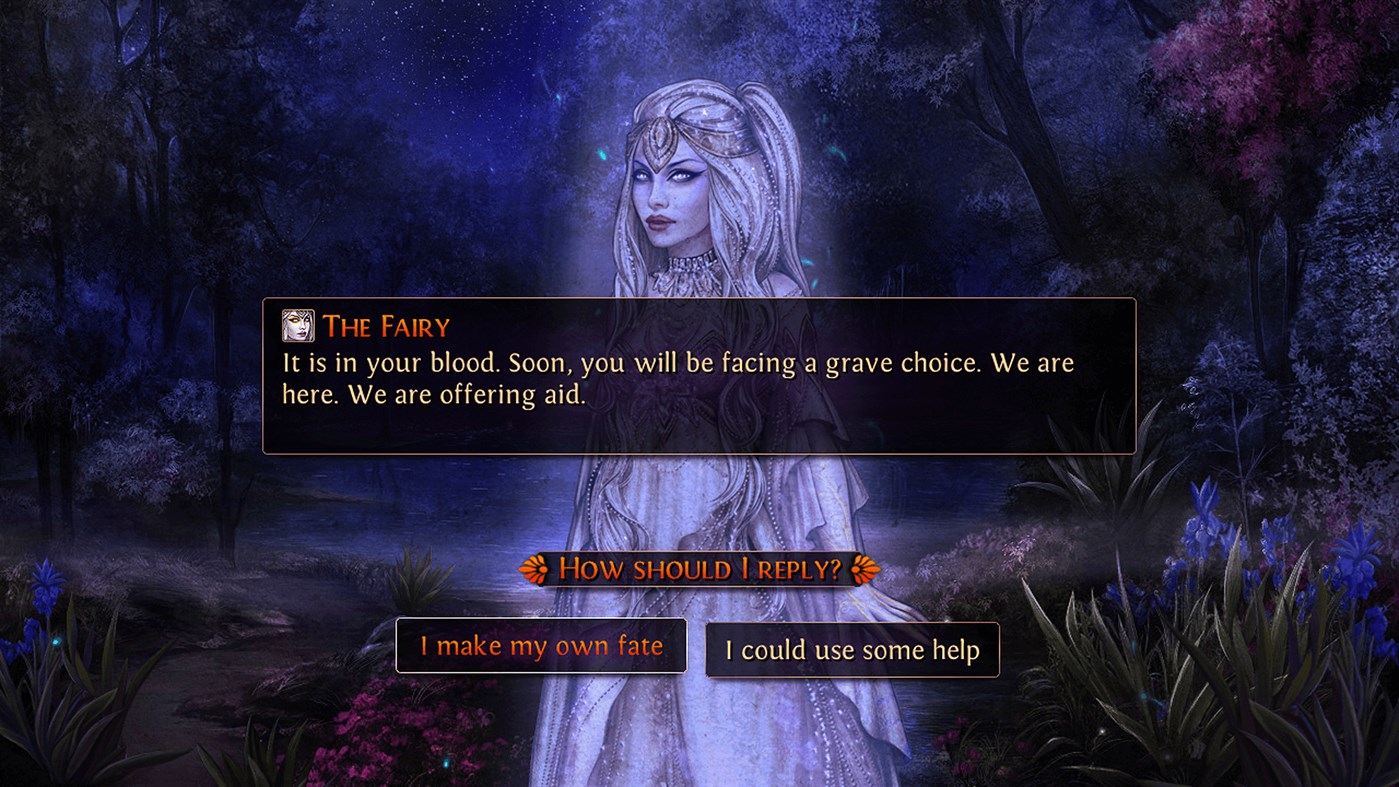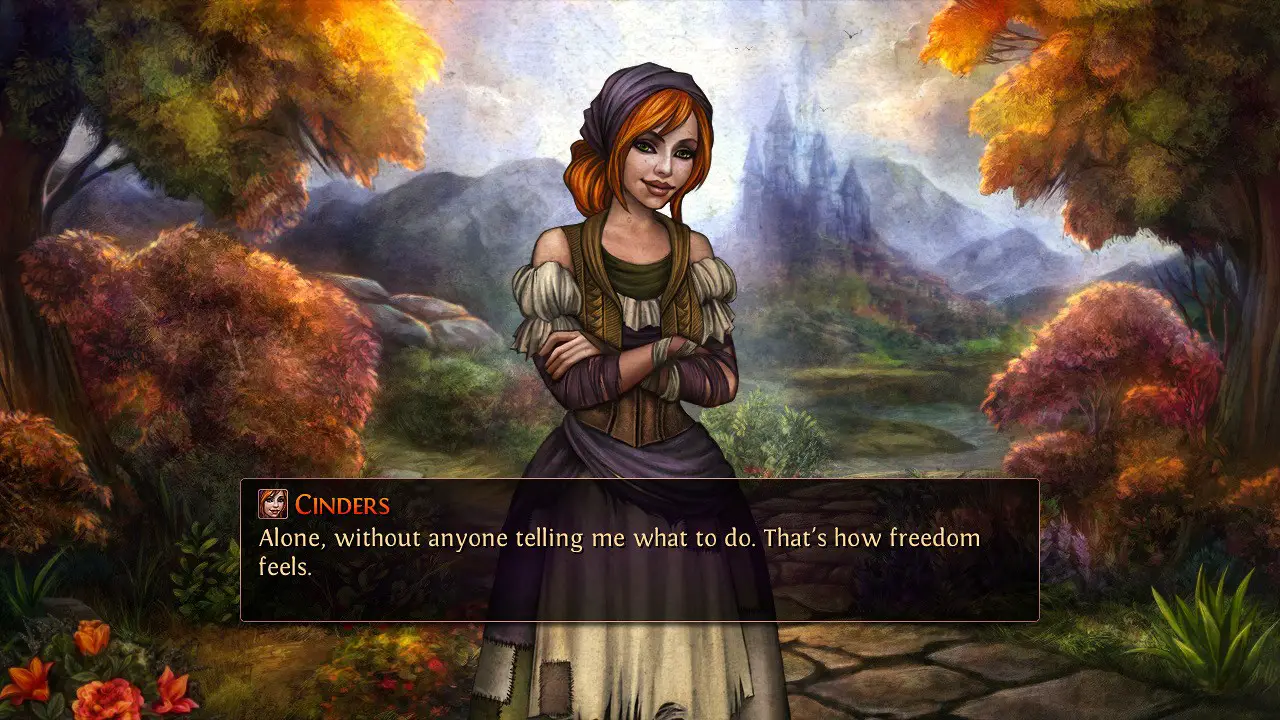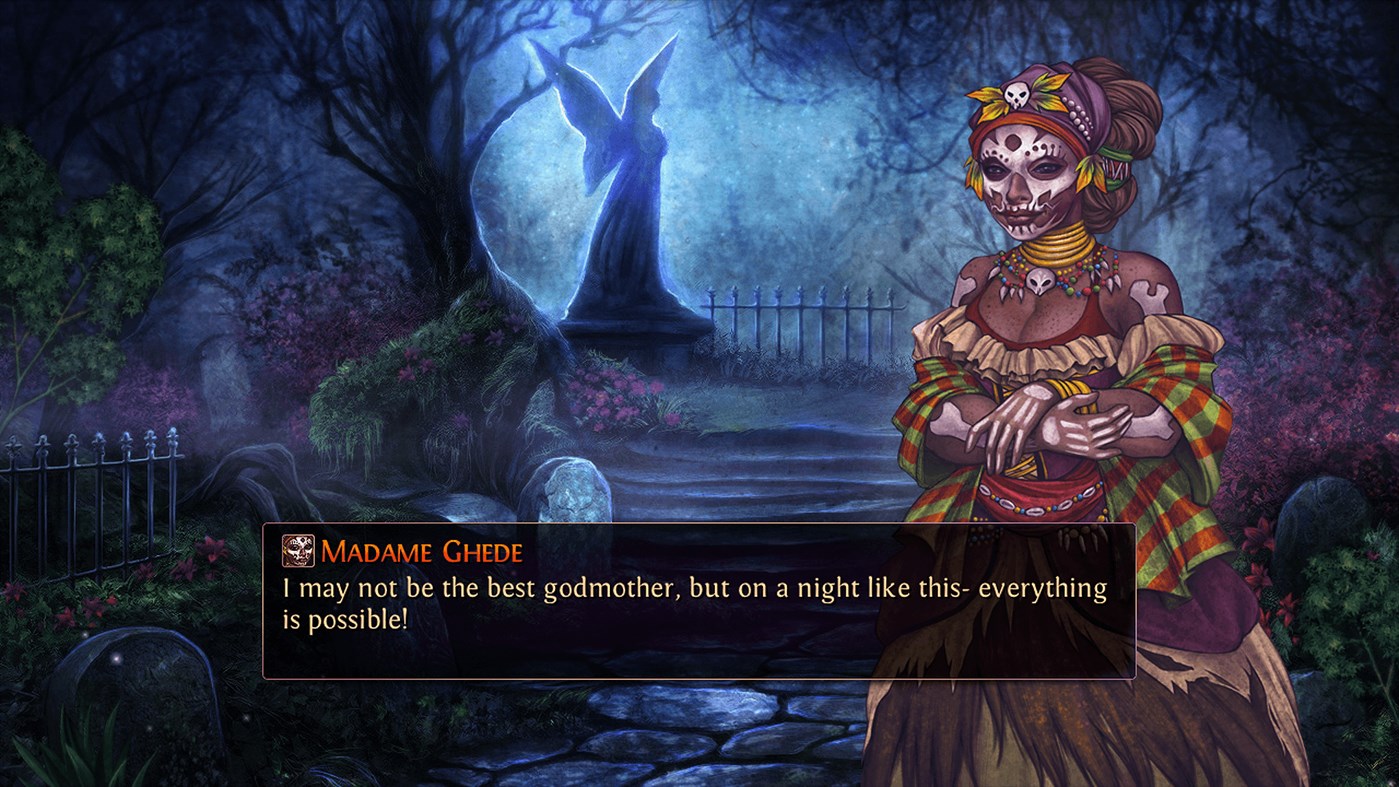Cinders, a hip, contemporary, but kind of lazy nickname for “Cinderella,” is… a hip, contemporary, but kind of lazy re-telling of the classic fairytale in visual novel form. It tells the story of Cinders – a beautiful young woman with big ambitions who lives with, and is held down by, her stepmother and two stepsisters. You know the tale: Cinderella, with a little help from the magic of her fairy godmother, attends a royal ball against the wishes of her evil stepmother in an attempt to win the heart of the prince and change her life. She does win him over, but when the magic begins wearing off, she has to flee the ball early, leaving behind a shoe that the prince later uses to track her down and proclaim his love. The game Cinders claims to tell a more adult version of that story and invites players to make decisions that could rewrite it. Everyone loves a classic, so I was intrigued! But, as you make choices that cause changes to the formula of a classic fairytale, you risk removing the magic that made that story so endearing.
With all of this in mind, I started the game and immediately loved the music. Visual novels normally don’t have many sound effects or any dialogue at all. Since the game takes around three hours or so to finish and 99% of that time is spent reading, the music had to be good, and it was. Beautiful outdoor scenery was complemented by peaceful, flowing instrumentals, and when something a bit more dire was going on, the music became stern and heavy. It was the type of soundtrack I definitely didn’t mind listening to on repeat for hours on end. I do think more sound effects would have gone a long way though. There is a terrible beeping sound that plays as text is revealed, but thankfully, that can be turned off in the options menu. Other than that, really all you hear in the game other than the music is knocking on doors, and the occasional cricket or bird chirp. I would have loved to hear wind and the tip-tap of raindrops, footsteps, leaves rustling, characters breathing, sighing, gasping, and so on – I would have been sucked in more and felt like a subject in a scene, rather than someone reading a book on a television.
Visually, Cinders is up to par for a visual novel with lovely hand-drawn characters and scenery. The characters’ movement is minimal, which is to be expected, but as you click through dialogue, they change expressions and change their stance or the positions their arms are in as they talk, which helps to give them a little more life. If there is any complaint to be had, it’s that the characters all look a little too similar. If you gave everyone in the game the same haircut, I’d have difficulty telling them apart if it weren’t for the occasional distinguishing feature, like a scar or necklace. There is a nice indicator in the upper-righthand corner that tells the player when a scene being shown could have played out differently if different choices had been made – which is excellent for completionist types.
The dialogue between characters is a little too cookie-cutter. There is one character who appears to speak with a cockney-like accent, but other than that, vocabulary, sentence structure, and accents are the same for everyone, so character development is somewhat stunted. I also noticed a few typos in dialogue, which is unusual. It didn’t take me out of the game or anything, it just came off as kind of sloppy.
The story is clearly the most important part of a visual novel. In this case, the skeleton of the story is already implanted in the minds of just about everyone who will ever play this game, so most intrigue was always going to come from the choices you make for Cinders, and the parts of the game that differ from the classic fairytale.
The story begins by introducing the beautiful Cinders and showing how unhappy she is in her current life. Her father passed away years ago, leaving her with her stepsisters and stepmother who treat her poorly. Her stepmother works her to the bone in exchange for allowing her to live in the home her father used to own and she isn’t rewarded for any of it with money or praise. She is hardly given any freedom at all – trips to town seem to only happen when an errand has to be run, and even those are somewhat rare.
Unlike Cinderella, Cinders has the option to see her two sisters, Gloria and Sophia, as complex human beings, which is refreshing! In past tellings, they are usually described as one-dimensional villains; they’re hoity-toity brats with sticks up their butts and a strong sense of entitlement wrought unto them by their bird-of-a-feather mother. In this story, the stepsisters are still clearly the favorites of Cinders’ stepmother, (their biological mother), but they are treated about as poorly as Cinders, so it is easier to sympathize with them. In my playthrough, even though they were rude to me, I had Cinders reach out to them and show them the sort of sympathy I wished they’d show Cinders. After their responses later in the game, a stronger sense of sisterhood felt tangible, so I was satisfied with my choice long-term.
Meanwhile, it is revealed to us that the late king’s dying wish was that his son, Prince Bastile, marry before he is crowned king. To his credit, the prince frequently expresses his eagerness to find a wife who is bright and interesting, rather than just a pretty face. He organizes a royal banquet to meet prospects, and makes it a masquerade ball to level the playing field and be sure that he isn’t tempted by just a beautiful face.
By sneaking around and gossiping in town, Cinders gets some dirt on the nasty stepmother, Lady Carmosa. We learn that she is struggling financially, that she cheated to get her daughters invitations to the masquerade, and that although Cinders’ father’s will did designate Lady Carmosa to inherit the estate, Cinders is next in line and so would benefit the most from Carmosa’s demise. However, during my playthrough, I was unable to make use of any of that information, so it felt a little wasteful.
About halfway through the game, the player has to make a huge decision: What is your goal? To re-take control of your household, win the affections of the prince, or skip town and begin life anew? Eager to avoid a cliche, I decided to try to skip town and start over… more on that later…
Cinders meets a mysterious, witch-doctor-type, Madame Ghede, who used to know Cinders’ biological mother and has vowed to help Cinders with anything she needs. She helps us sneak into the royal ball, and says she will send someone to help us skip town, since that’s what we aspire to do. We also have a brief run-in with “The Fairy,” who just turns up one night, looking like a glowing human and saying vaguely threatening things… No more on that later…
At the ball, we see our two step-sisters blow it with the prince, much to their mother’s chagrin. Then, we talk to the prince and are charming and intriguing. He seems to want to get to know Cinders more, but she leaves the ball uneventfully- still with the player-implanted ambition of fleeing town.
Upon returning home, the prince’s guard bangs on the door and pretends to arrest Cinders for sneaking into the ball – a charade to help Cinders get away. After that, the player is shown a message that says Cinders left the town and joined a group of vagabonds, then sort of bounced around from here to there and enjoyed her freedom. The end.
So what I am to make of this particular turn of events? If Cinders’ goal was to skip town, and sneaking out of her room is so easy (I did it multiple times), why didn’t she just sneak out and leave on page one? What has all of this been about? Having that ambition makes the prince, Madame Ghede, the fairy, and everyone else entirely obsolete. At the end of my playthrough, it felt like I had just been presented with a series of red herrings and then sent on my way. Without spoiling it, I will say that the other two ambition options both lead to more interesting events and one of them does make the story much darker and more adult. The choice to leave town and start a new life should be a rewarding one too, but I now wonder if this is the ending that the developers put the least amount of thought into. It feels a little weird to critique the story of a make-your-own-adventure game because you think “should I have made a better adventure for myself?” But it shouldn’t be left to chance that a player may unknowingly send themselves down the path of an unfulfilling tale. Every option presented should be full-fledged because some players aren’t interested in going back and completing every ending. It can be satisfying to make tough decisions on instinct and then have to live with them, never knowing what could have been.
Cinders is light, mostly unobjectionable, and easy to swallow, but it might be hard to recommend. At the end of the game, I found myself feeling a little disappointed because I’d attempted to challenge tradition by making a choice that developed our heroine as a kind, strong, ambitious, independent woman hellbent on starting a new life away from her wicked step-family and making a name for herself doing something she is passionate about. But when I’d finished that playthrough, I hadn’t succeeded in making a very strong connection with any other character, and I felt about Cinders exactly the same as I did when the game began.
























